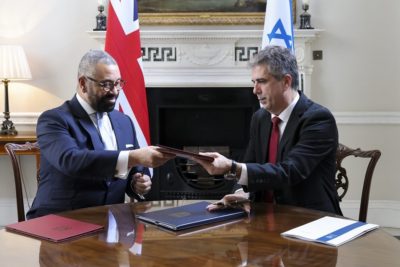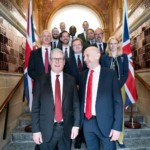Militarising Communities: The Armed Forces Community Covenant
As we mark the centenary of WW1 the UK armed forces are enjoying the highest levels of public support that they have seen for decades. One result of the global ‘war on terror’ has been the elevation of military service, not just as an exceptional form of labour which is due particular rewards, but also as an occupation that benefits the whole society. The last few years have seen the increasing application of military values, methods and even training in civilian spheres such as education, youth work and leisure. The Department for Education, for example, promotes the ‘military ethos’ in schools on the grounds that this ‘helps foster confidence, self-discipline and self-esteem whilst developing teamwork and leadership skills’ (the original ‘landing page’ for the Military Ethos in Schools programme has not been included on the DfE’s new website, leading to suspicions that it was removed quietly in response to numerous criticisms and concerns raised about the programme). In November 2013 the DfE announced that £4.8 million would be allocated to fund new projects run by former armed services personnel after research showed they were ‘turning around the lives of thousands of young people’.
Over the past year, a new network of writers, artists and campaigners has been forming in opposition to the creeping militarization of everyday life, an issue analysed in Sam Walton’s recent piece for Red Pepper. This was partly inspired by a ForcesWatch conference in London in October 2013. The conference spanned numerous angles, from the development of ‘militainment’ in popular culture to the ruthless promotion of the UK arms industry in the global war economy.
As politicians have sought to prove their own commitment to the troops in an effort to control ‘the message’ about the wars, they have effectively turned this public concern into a political instrument. One consequence has been that, within the last two or three years, local authorities up and down the country, from borough to county level, urban, metropolitan and rural, have been ushered into an unprecedented programme of support for the armed forces in their areas. This development is symptomatic of a wider process of integrating military work into civil society, but it also reveals the social costs of maintaining a professional military force at home.
Sacred contract
The idea that British soldiers were the victims of futile, ill-thought out foreign policy took root in 2006, at the point where the country was still embroiled in Iraq and becoming enmired in Afghanistan. It came about through a combination of factors, not least the extent of public dismay at the numbers of soldiers being killed. The phenomenal success of charities like Help for Heroes helped to galvanise public sympathy, bolstered by a pliant media which deflected public anger over Iraq into concern that the government was failing the young ‘heroes’ who had been sent into battle. Then there were the extraordinary scenes at Wootton Bassett where, from 2007 to 2011, crowds would gather to pay their respect to those who returned in coffins.
Less sensational was the Military Covenant campaign, launched by senior military figures, The Royal British Legion and journalists, which forced Brown’s government to address the symbolic aspects of military service as well as the material ones, such as equipment for troops in combat and housing on domestic bases. The concept of a sacred contract between the soldier, his or her family and the nation was eagerly taken up as a campaigning issue during the 2010 general election campaign. This statement of support for the entire military institution was amended to the ‘armed forces covenant’, and subsequently given questionable legal status in the Armed Forces Act of 2011. Meanwhile one of Cameron’s first acts as PM was to pledge that he would put the armed forces ‘front and centre’ of British national life. This was soon followed by a boast that Britain would ‘punch above its weight’ in global affairs.
The use of the covenant as a campaigning device drew on similar practices being adopted in the US. In 2009 the American Legion adopted a Community Covenant program, previously piloted by the army as a way to raise their profile in civilian communities adjacent to military bases. The scheme involves a public ceremony in which an ‘armed forces community covenant’ is signed by army officers, an assortment of community ‘leaders’ and other notables who make a symbolic commitment to support the service community in their area and to promote public understanding and awareness of the issues affecting them.
In May 2011 the MoD initiated an almost identical scheme in the UK, inviting local councils to sign the Armed Forces Community Covenant (AFCC) with a fanfare of publicity. Colchester, a garrison town where the 16 Air Assault Brigade is based, was one of the first towns to join the scheme. The publicity shot showed the Mayor, council officials and army personnel – including a man dressed as a Roman centurion. Since then, more than 250 boroughs, cities and councils have pledged their commitment, not just to support their local armed forces communities as a symbolic gesture but also to work for their integration into the life of the community. Indeed, the MoD is now able to produce a list of councils that have not yet signed up.
Military welfare state
So what exactly does this commitment entail? There are certainly ways in which militarised civilians such as spouses and children bear the brunt of a lifestyle dictated by a hierarchical and authoritarian organization. Families are normally clustered ‘behind the wire’ in (usually sub-standard) service quarters and required to move at short notice. The AFCC obliges councils to train staff how to deal with a host of health, education and social welfare issues relating to sprawling military communities, including cadets, reservists, veterans and those in the process of leaving the forces.
While there can be little argument that some of these measures are necessary, there are some rather more questionable parts of these new integrative schemes.
By placing the onus on local authorities to extend public services to military families, the government is effectively reinforcing the connection between military work and social services that was cemented in the post-1945 welfare state. The irony lies in the attempt to do this at a time when this same welfare state is being eviscerated by neoliberal policies. Apart from a funding scheme available for particular projects designed to promote civil-military integration, there is no extra money to provide or improve existing services. A local government sector already decimated by cuts is effectively being asked to provide new resources for the maintenance of a professionalized military workforce.
Building new housing is a key element of this process of integration, made even more pressing by the national shortage, especially in the south of the country where many bases are located. But there is also the eternal demand for young recruits, as well as the newly devised strategy to increase the number of part-time soldiers. By acknowledging military bases as employers involved in a local economy and even sharing communal space, the business of sustaining a constant stream of new military workers emerges a central plank of this new arrangement.
These recent, highly politicised measures must be recognised for what they are. Enhancing the work of soldiering as an intrinsically noble calling is more likely to promote military methods and values as standards for civilians to follow. This has worrying implications on many levels, not least for entrenching gender distinctions and shaping ideas about who does or doesn’t ‘belong’ to the nation. As the network convened by Forces Watch concluded, there are grave dangers in eroding the distinction between civil and military work. Anything that obscures the main function of the armed forces as an organisation trained to deliver lethal violence disguises the true nature of war.
A full account of the Forces Watch conference including films of many of the speakers can be found on the FW website. Forceswatch will soon be publishing a short book which will explore how the privileging and prioritising of the military and military approaches are embedded in various aspects of UK culture, but that there has been – and is currently – significant resistance to this.
Vron Ware writes a regular column on militarism and militarization for openDemocracy. She is currently based at Kingston University.
See more: military in schools/colleges, military in society,
Like what you read?
> Sign up for our newsletter or blog notifications
> Support our work – from just £2 a month










